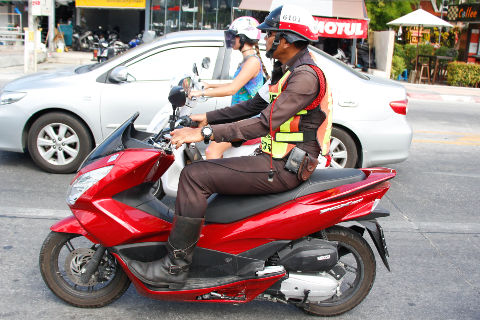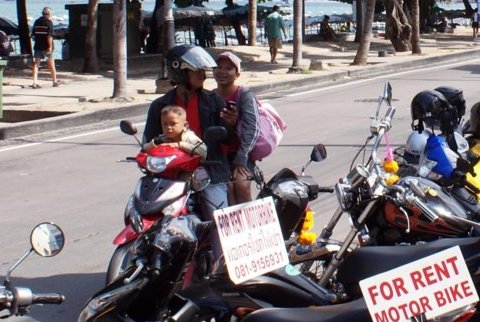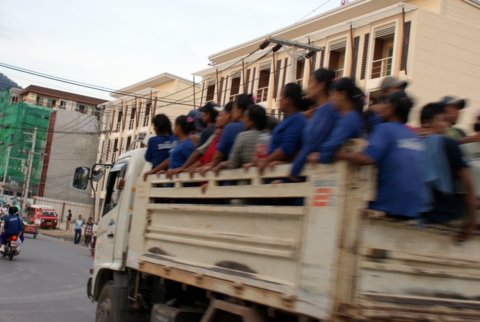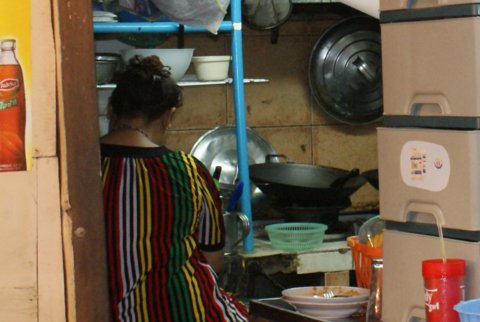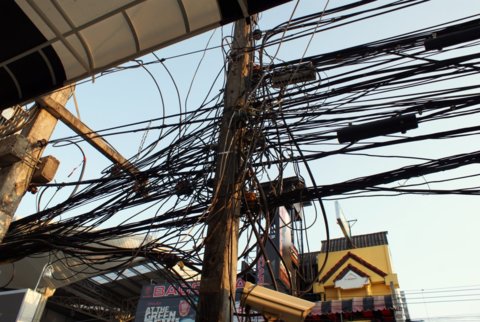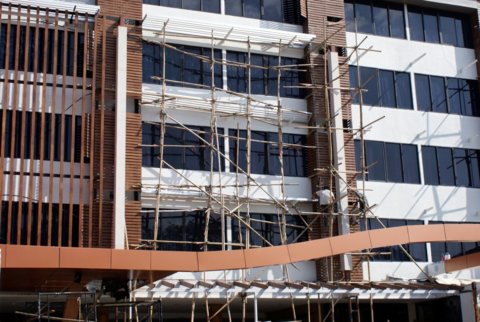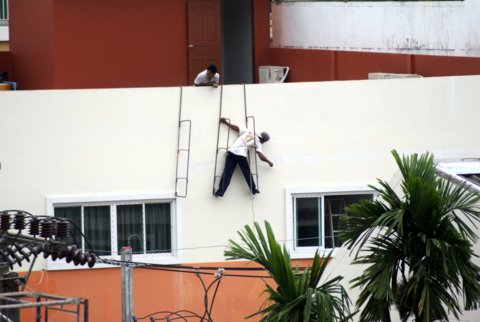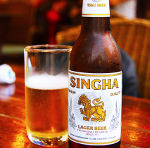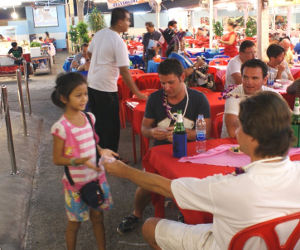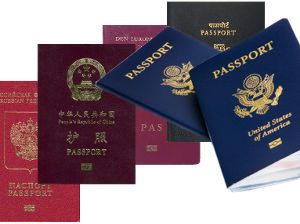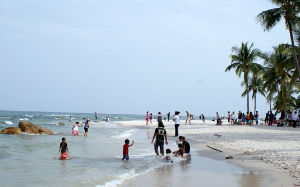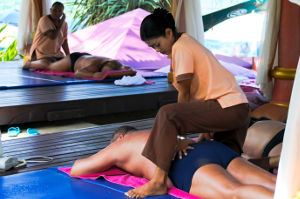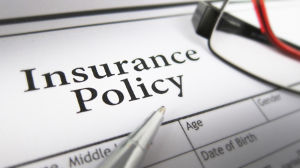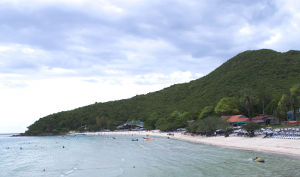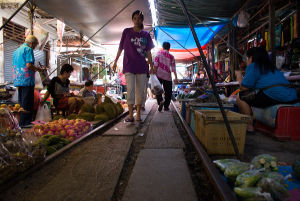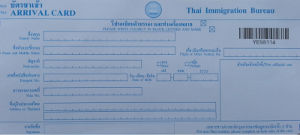Safety in Thailand
Many of the rules and regulations in developed countries are either non-existing or ignored in Thailand.
If you are from a country with safety rules and regulations – and where the people abide by those rules and regulations – then Thailand will feel very different.
Often, a government makes rules and regulations and enforce them to make lives safer and more secure for the population; to make it safer to eat at restaurants, drive in the traffic, live in apartments and houses, and to work in dangerous lines of work. In Thailand, they actually do have a lot of rules and regulations; however, often they are vague, and even worse, often, they are ignored.
Road Safety
You wouldn't know it when you see the way they drive in Thailand; nonetheless, they do have traffic laws, they even have a special police division to enforce the laws.
Still, you will regularly witness violations of the traffic laws. People are driving way too fast, driving through a red light, driving the wrong way on a one-way street, motorcycle and scooter riders ride without helmets etc.
The main reason is the way the police work. The police seldom go on patrol and stop violators; instead, they erect checkpoints where they (loosely) control drunk driving, whether the driver has a license, etc. The police never catch speed violators this way, and the motorcycle and scooter riders have time to put on their helmet - or to turn around to find another way without passing the checkpoint. Meaning, there virtually is no risk violating the traffic laws.
And then, of course, there are the laws that aren't there. Speaking of riders without helmets, only the driver must wear a helmet. It is perfectly legal to ride with small children or other passengers without helmets. And there is no limit to how many passengers you have on the bike.
You will often see families or even whole construction teams transported on the back of a pick-up truck or a lorry. The government tried to outlaw transport in the back of a pick-up truck; however, due to rebellion from people depending on transportation this way, they never enforced it.
In addition, some laws or lack of laws seems inconsistent; for example, when riding a taxi, you have to use the seat belt; when riding a tuk-tuk, you don't. Thus, sitting in a protective steel box, you have to use a seat belt, in an open tuk-tuk with no protection whatsoever, there is no such requirement.
Food Safety
Thailand is known for its street food and inexpensive restaurants; although the taste is great, the food safety is somewhat lacking.
It is not unusual to see rats or various insects like cockroaches when dining outdoors. In addition, the street food vendors know nothing about even simple food safety rules, such as separation of raw meat and vegetables to avoid contamination by bacterias like salmonella and MRSA – this applies for cooks in many of to the big restaurants too.
When you order food from a food cart, do yourself a favour and order the meat well done to avoid getting your holiday ruined by an upset stomach or worse. Typically, the food carts offer chicken, duck, pork, or beef in small pieces; it is not like if you order a steak well done, which some consider a crime.
Electrifying Power Safety
At most places in Thailand, you will see a myriad of power cables struggling to find a place to hang in the power poles. It cannot be easy to be an electrician here.
However, the cable clutter is not the big culprit when it comes to accidents involving electricity. Instead, the problem is poor cabling in the houses, faulty electrical appliances, and the Thai's lack of respect for electricity. Every year, people die in the recurring floods in the rainy season; however, drowning is not the biggest killer, many die of electric shock.
Take a look at this photo from a reuters photographer to see an example of the Thai's lack of respect for electricity. Due to the copyright, I cannot show you the photo here; I can only give you a link. I have seen similar photos elsewhere of flooding in Thailand; this is not a unique case!
Not to make you overly nervous, but every year, tourists die when taking a shower because of electric shock from the water heater; this is mostly a problem in cheap hotels or guesthouses. If you see visible wires sticking out from the water heater, maybe you should turn on the water to see if sparkles are flying, before you get in the shower.
Safety First
At some construction sites in Thailand, you will see big signs saying Safety first. Still, it does not seem as the workers take this too seriously. At smaller construction sites, they certainly do not take it seriously at all.
On this photo, you can see a typical Thai scaffolding made from bamboo that is tied together. It is a single pole scaffolding; please note that there is no ladder; the workers climb the bamboo poles.
In some places, you will see a double pole scaffolding; however, the scaffolding will probably not have a board decking for the workers to stand on. The worker may bring a board himself when he climbs up the scaffold; he then carries the board around to where he will be working.
Erecting a scaffold is, of course, too much for small repairs. Take a look at this photo of a wall needing some extra paint.
No, the painter did not use a ladder to climb down and up. Nonetheless, in this case, they took safety seriously; please note the man on top of the building, ready to warn pedestrians if the painter should fall.




